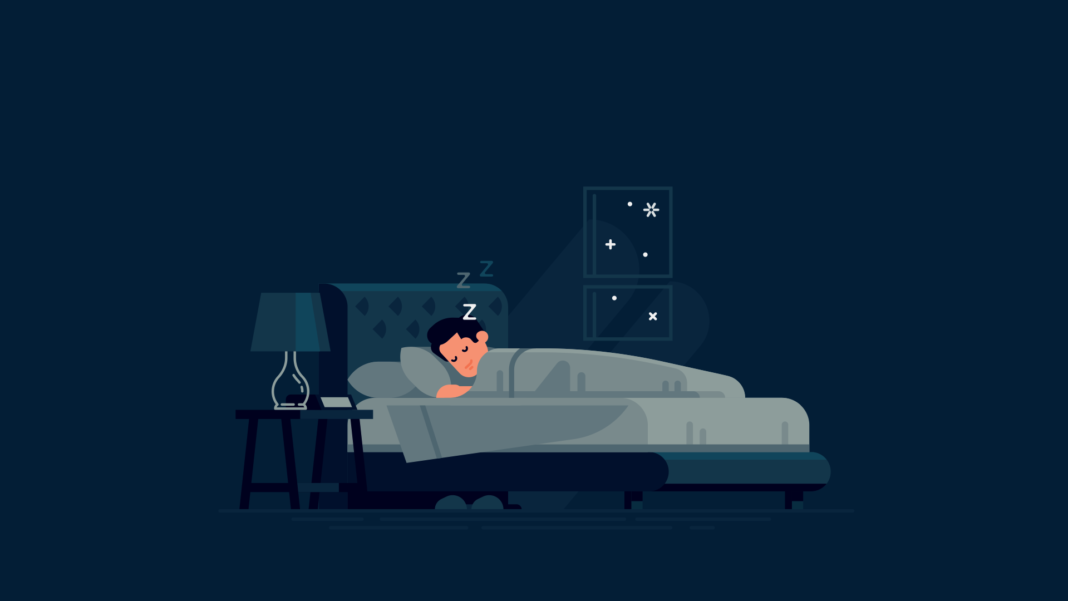Old school wisdom dictates that sacrificing a restful night’s slumber for another rep at gaining an advantage over the competition while they sleep, is a competitive edge. There was a time where “burnout culture” served as a badge of honor to a dedicated soldier in the entrepreneurial world. However, past practices are no match for the psychological and biological sciences of today.
Hustling when your tank is on empty can often leave you stranded on your way to accurately accomplishing even the most modest tasks. Sleep is a commodity you can cultivate into an essential asset for your operating system. Trading rest in for all-nighter proposals, early morning spreadsheet toiling, or mentally-exhausted brainstorming sessions will often result in a cognitive net loss. Sound business leaders implement efficient and effective methods that positively impact the bottom line, shouldn’t the same be the case of their self-recharging formula? Sound sleep is an investment in yourself.
How much sleep should someone at the helm of a growing company get on average? According to sleep.org and the National Sleep Foundation, for adults, 8 hours a night of night is encouraged, with a prescribed minimum of 7 hours per night.
Recent studies are indicating a change in how CEOs and corporate heads approach their sleep schedules. From day-to-day procedures to the launching of a new venture, lack of sleep can be detrimental to any entrepreneur. A study by sleep researchers recently found that as much as two in a row of fewer than six hours of sleep can hinder performance for up to six days.
There’s also the overall adverse health impact, not catching enough winks can have. Higher blood pressure, heart disease, and risk of stroke are among the many severe conditions connected to not getting enough sleep over an extended period.
While the inherent risks of self-induced work-related insomnia are many, the rewards of sleep are significant are simple. To achieve optimal performance in the business arena, here are some healthful measures to assist entrepreneurs to actualize their nightly routine.
Unlimited access to pick-me-ups like coffee and tea is a cherished perk in an office setting. However, controlling your caffeine consumption is an essential means to combat sleeplessness. Caffeine is a stimulant that can disrupt your body’s natural sleep schedule. In addition to disturbing the quality of deep sleep, it can also lessen the total amount of sleep you’ll get, the closer you consume it to bedtime.
Just like all the conference calls and staff meetings carved into your virtual calendar, prioritizing a full night’s rest isn’t something you can reschedule for next week. It won’t always be possible to delegate your workload or cutback on urgent matters. However, if you get in the habit of adhering to a 7-hour block of time to reset, this commitment will become second nature.
A sedentary lifestyle and an overactive brain can make it hard to fall asleep promptly. Being active or working out a few hours before bedtime can clear your mind and prepare your body to seamlessly descent into slumber. Struggling to fall asleep can throw your mind down a rabbit hole of restlessness.
While siestas aren’t a cultural norm in the corporate work week, taking a nap when possible can reenergize you and set up your sleep schedule for optimal results. Naps, as short as 10-20 minutes, have been shown to benefit performance and alertness in the business setting. However, be aware that naps over 20 minutes could trigger sleep inertia, which could cause you to feel disoriented or groggy.
Treat your bedroom as a sleep sanctuary free of phones and the dreaded “blue light screens.” Check last-minute emails and reviewing clause-laden contracts in bed, is a late night common practice of entrepreneurs. However, the blue light emitted from your devices makes it harder for you to fall asleep. A Harvard study suggests that the blue light can suppress the natural melatonin that your body creates to help you sleep.
Keep a digital or analog sleep journal. The obsessiveness that of a leader committed to their business can be mined for sleep well being. Tracking how much sleep you should be getting can help you regulate any sleep inefficiencies. There’s plenty of wearable tech and apps that will do this for you; it’s just a matter of setting the procedures in place.
Your days are tiresome, but you don’t have to be tired. Sleep peacefully and you’ll maximize your accomplishments.


